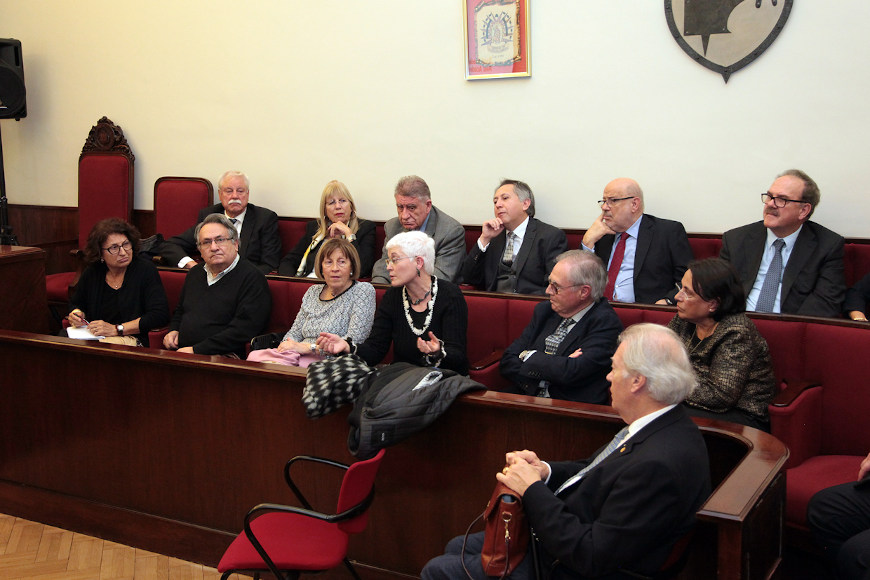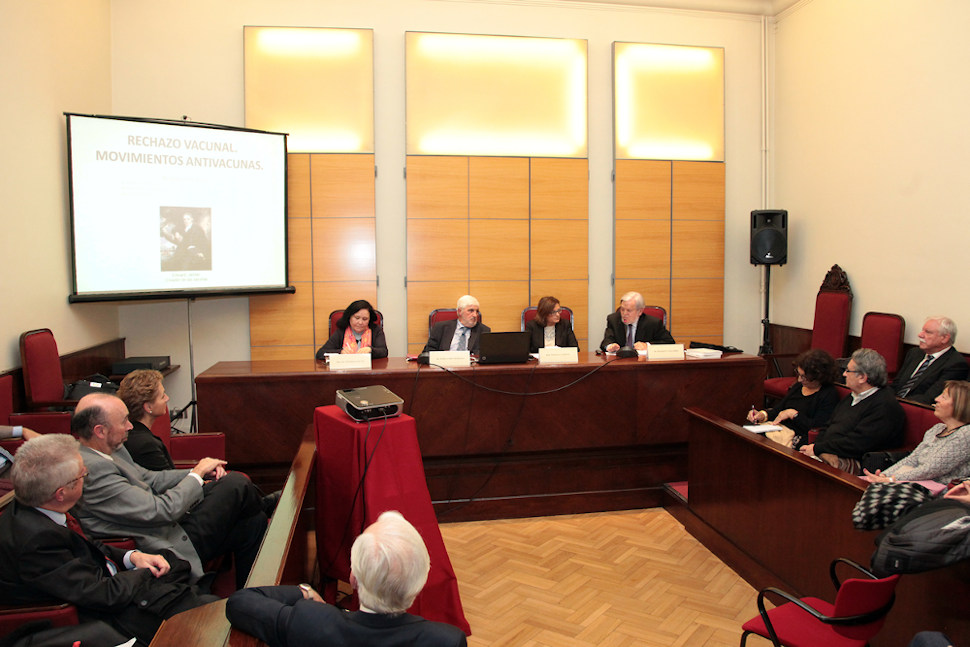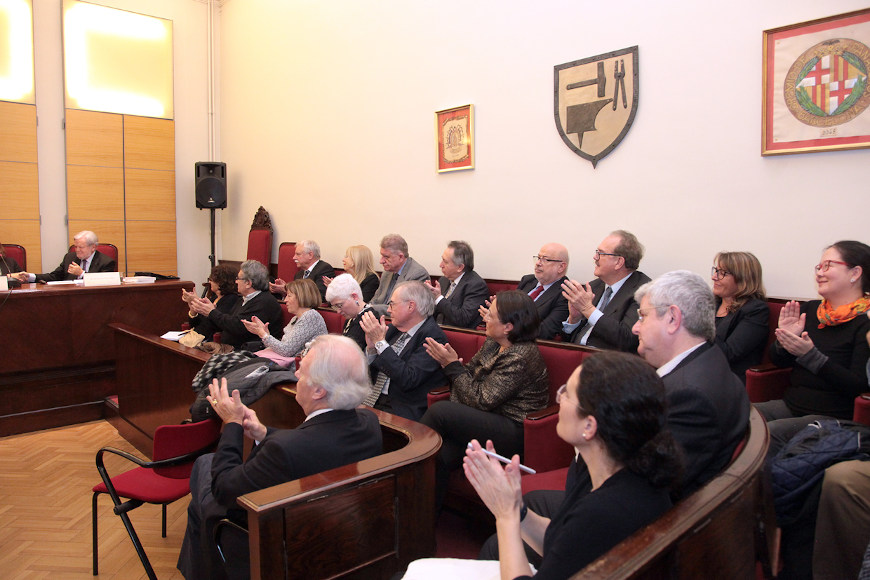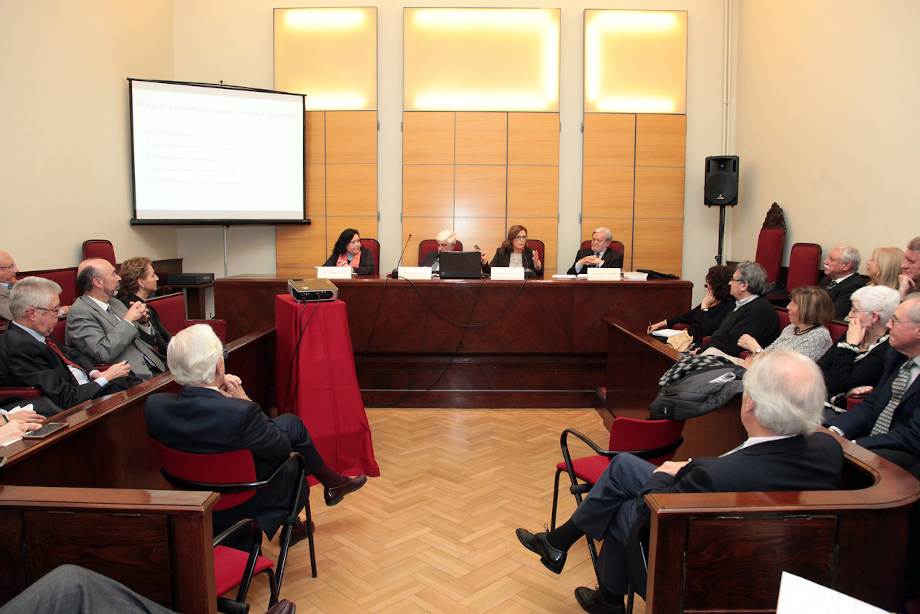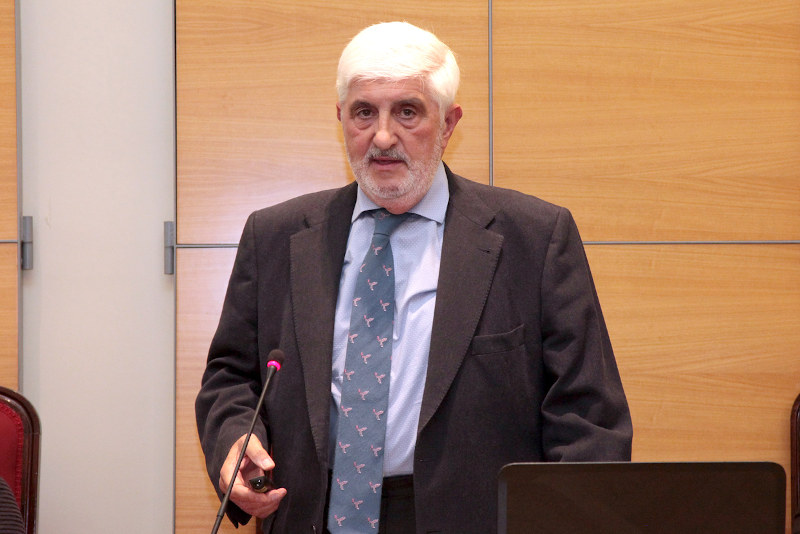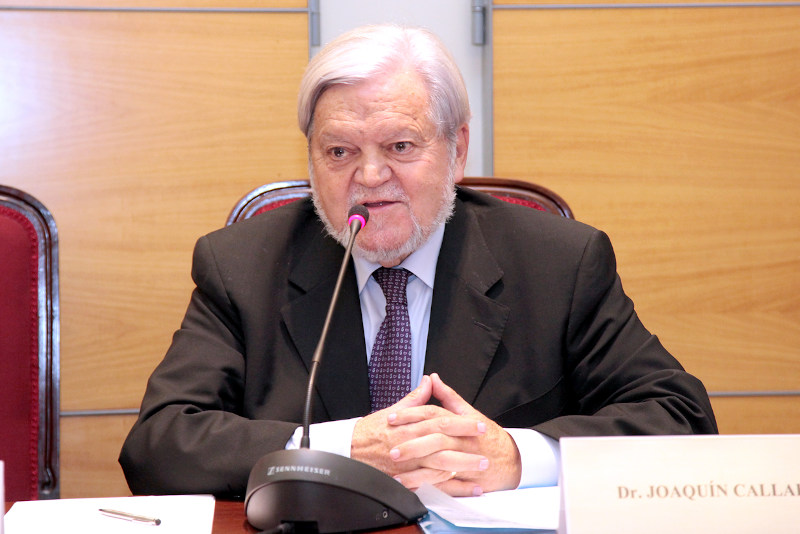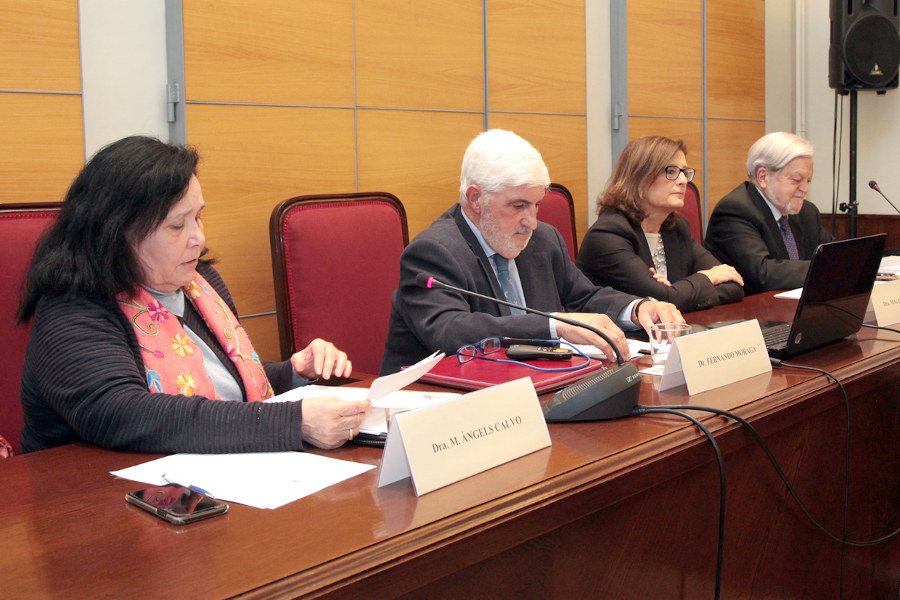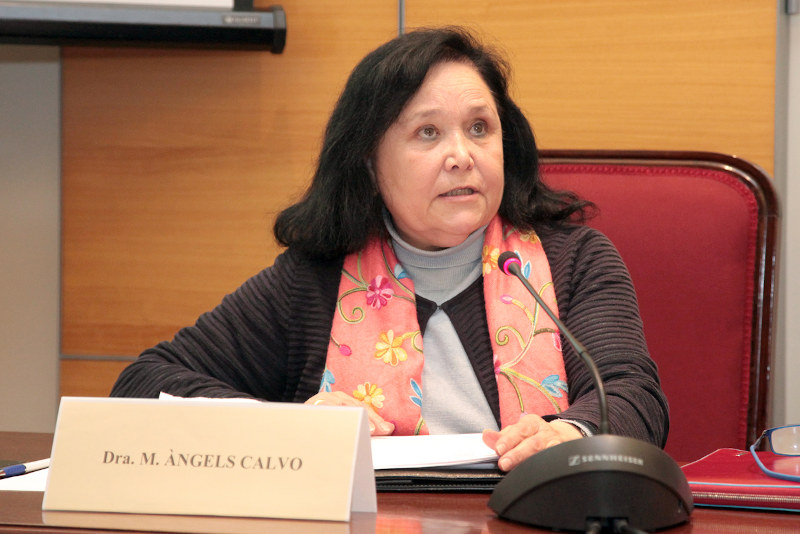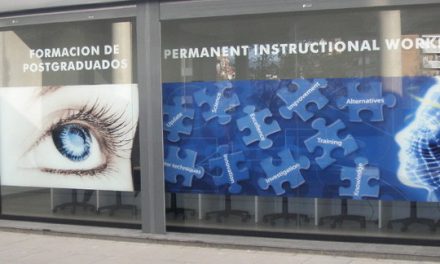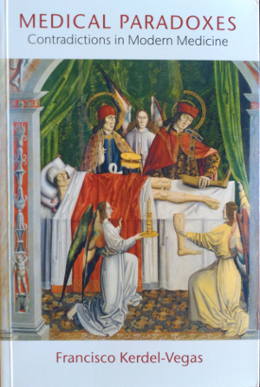The Royal Academy addresses the debate on vaccines from a scientific point of view with leading specialists
The Royal European Academy of Doctors-Barcelona 1914 (RAED) held on November 26 in Barcelona the round table “Las vacunas en el siglo XXI: aspectos científicos y sociales” (Vaccines in the 21st century: scientific and social aspects) to address certainties scientists on the different vaccines that are both inside and outside the different calendars of Spanish public health and the myths and falsehoods that circulate around them. The session was coordinated by Joaquín Callabed, full academician of the RAED and president of the Spanish Social Pediatrics Club, and was presented by the also full academician and vicepresident of the RAED Maria Àngels Calvo, in turn academician of the Royal Academy of Medicine of Catalonia, of the Royal Academy of Pharmacy of Catalonia, of the Academy of Veterinary Sciences of Catalonia and of the Royal Academy of Doctors of Spain.
Calvo presented the paper “Movimientos sociales antivacunas. Aspectos bioéticos que considerar” (Social movements anti-vaccines. Bioethical aspects to consider). The session was also attended by specialists in the field as Fernando Moraga, pediatrician and vicepresident of the Spanish Association of Vacunology, who addressed the updates in the calendar of childhood and youth vaccines in the paper “Nuevas vacunas en el calendario infantil” (New vaccines in the children’s calendar), and Magda Campins , head of the Preventive Medicine service of the Vall d’Hebron Hospital in Barcelona, who presented the updates on adult vaccines and the need for a stricter control in the presentation “Un calendario vacunal para adultos” (A vaccine calendar for adults).
Callabed, on the other hand, analyzed the different family options under the bioethical point of view, movements that reject vaccines and medical opinions on the subject and the principles of autonomy, beneficence, non-maleficence and justice that affect those involved. “Given the growing rejection of vaccination in families, we consider it appropriate to contribute some ideas, since new paths are needed for new solutions”, said the academician, for whom the best way to deal with what can become a public health problem is to expand the studies of frequency and causation of vaccination to those of current behaviors, beliefs and lifestyles, assess the opinions of health professionals about the need for medical history, informed consent, monitoring and information on possible side effects and training of vaccinators, recognize that every patient should be respected as a person even if their opinions aren’t accepted, discuss and refute numerous pseudoscientific arguments by some families and anti-vaccine groups and expand the official information on vaccines periodically.
“Every person has the freedom to make decisions and the duty not to harm and respect the laws, and that is of particular importance on the issue of child and youth vaccination -he added-. It’s surprising that vaccination isn’t mandatory in Spain and that there are also 17 different vaccine calendars that should be governed by unified scientific criteria as a priority. In view of the disparity of legal criteria regarding vaccination, the RAED believes it’s necessary to raise its voice to the European authorities on health issues so that with appropriate epidemiological and scientific studies Community legislation is drafted that informs and sanctions in its sphere of influence on a good as necessary as vaccination”.
- Magda Campins
- Fernando Moraga
- Joaquín Callabed
- Mari Àngels Calvo Torras


